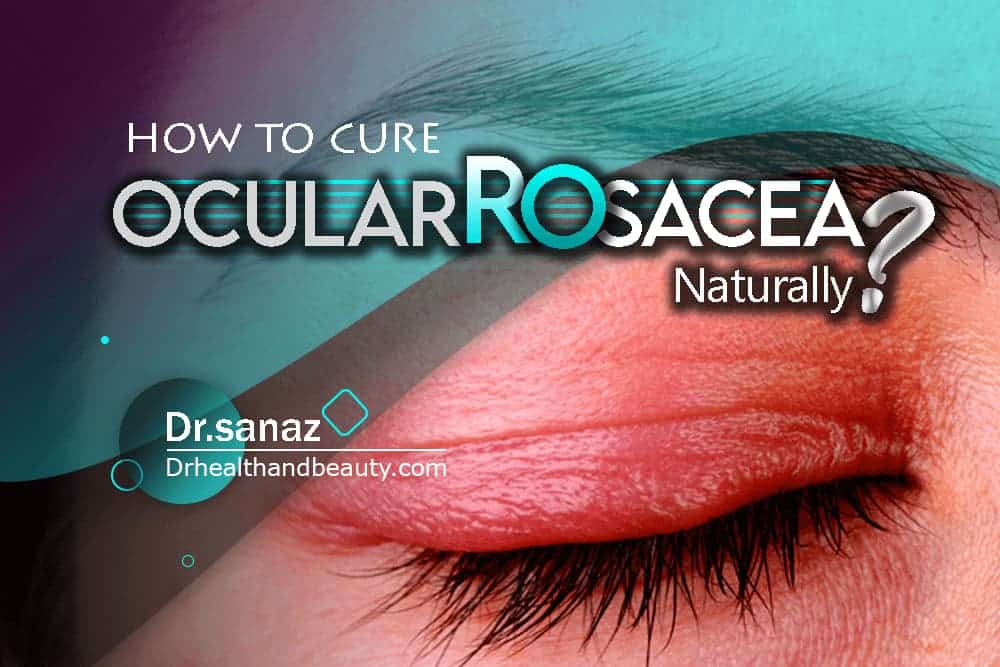
How To Cure Ocular Rosacea Naturally?
Table of Contents
Ocular rosacea is an inflammatory eye disease that often affects people with cutaneous rosacea. This condition primarily causes redness, itching, and burning of the eyes. There is much research about this disease, but no Natural Cure has been found for it yet. While there is no cure for ocular rosacea, medication, and eye care often manage symptoms.
However, cases of relapse are common. More than 16 million people have rosacea in the United States, and more than 50% have ocular rosacea. 58 to 72% of people with ocular rosacea are people with skin rosacea. The most common age group with ocular rosacea is between 30 and 60. According to a study published in the Journal of the American Academy of Dermatology, about 20 percent of patients will have ocular findings before skin evidence of rosacea.

What is Ocular Rosacea?
Rosacea is a chronic inflammatory skin disorder with variable manifestations. Although rosacea is primarily considered a skin condition and can cause facial flushing, and acne on the nose, cheeks, chin, or forehead, sometimes rosacea affects the eyes called ocular rosacea.

What are the signs and symptoms of Ocular Rosacea?
Signs and symptoms of ocular rosacea can precede skin symptoms of rosacea or appear simultaneously or after skin symptoms. Signs and symptoms of this disease may include the following:
- eye redness
- burning eyes
- watery eyes
- dry eyes
- itchy eyes
- sensitivity to light (photophobia)
- blurred vision
- The feeling of a foreign body in the eyes
- Swelling on the eyelids and the base of the eyelashes
- Congestion of the sebaceous glands of the eyelid
- Chalazion or eyelash flower
- Skin symptoms that may or may not be present.
- Tiny blood vessels on the eye’s white part can be seen in the mirror.
Be careful that the severity of the signs and symptoms caused by eye rosacea will not always be as severe as skin rosacea.

Causes of ocular rosacea
Ocular rosacea may be associated with one or more of the following factors:
Environmental factors
- bacterias
- Genetics: People with fair skin are more prone to rosacea.
- Eyelash Mites: Mites are tiny spider-like creatures that live in the hair follicles on your face and eyelashes and can clog the glands.
- Blockage of eyelid glands: Researchers have found that 85% of people with ocular rosacea have blocked oil glands around the edges of their eyelids.
- Bacteria that cause gastrointestinal infections.
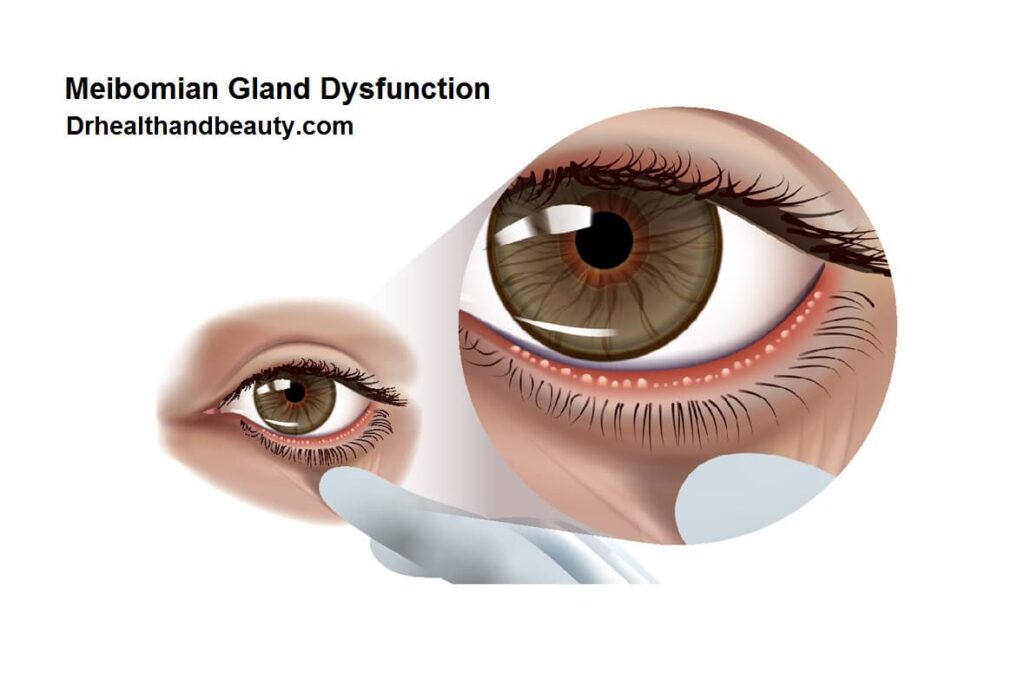
Factors of an ocular rosacea flare-up
- intense heat
- Sunlight
- wind, cold
- Very active sports, such as running
- Drinking alcohol, coffee, hot tea
- Eating spicy food
- Stress
- Cheese
- Chocolate
- Sauna or hot water bath
- Some medications, such as cortisone cream

Rosacea is more common in which gender?
Women are more likely to experience cutaneous rosacea, but ocular rosacea occurs equally in men and women with rosacea.
Complications of ocular rosacea
- dry eyes
- Blepharitis
- Inflammation of the cornea (keratitis)
- Corneal scar
- Cornea perforation
- Decreased visual acuity
- blindness

How is Ocular Rosacea diagnosed?
If eye problems occur, it is important to seek diagnosis and treatment to prevent possible vision problems.
Some people with ocular rosacea develop corneal problems. Corneal problems can affect the ability to see. Most doctors can diagnose ocular rosacea by looking closely at the eyes, but ophthalmologists and optometrists often use a microscope that focuses on blood vessels and glands.
Tear function tests may help your doctor diagnose ocular rosacea in its early stages. Ocular rosacea is often not easily diagnosed in people who do not have skin rosacea symptoms. Since these two diseases may occur together, it is recommended that those with skin rosacea have regular eye examinations by a doctor.
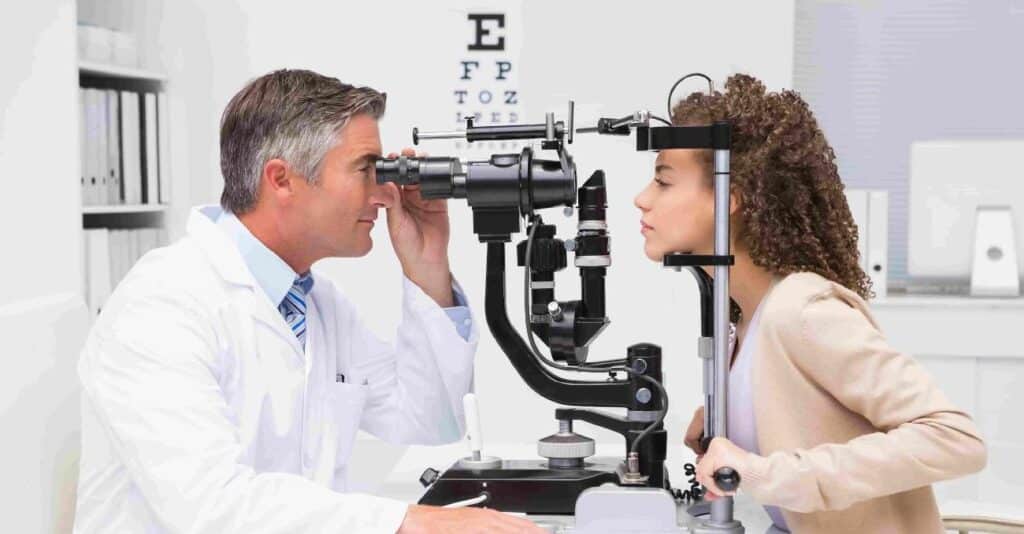
Treatment of ocular rosacea
Ocular rosacea cannot be cured, but there are treatments to help control symptoms. The earlier the medical intervention, the better, as Ocular Rosacea symptoms are often easier to control.
- antibiotics :
While skin symptoms usually resolve with a topical antibiotic applied directly to the affected area, oral antibiotics often treat ocular rosacea. Effective oral antibiotics include tetracyclines (doxycycline) or macrolides (erythromycin). Courses of antibiotics can be practical within six to twelve weeks, but low-dose versions are sometimes prescribed for more extended periods.
Although oral antibiotics are the most common treatment, studies have shown that topical cyclosporine improves ocular rosacea symptoms better than doxycycline and that topical azithromycin is as effective as oral doxycycline and has fewer side effects.
Topical antibiotics such as azithromycin, bacitracin, erythromycin, and metronidazole.
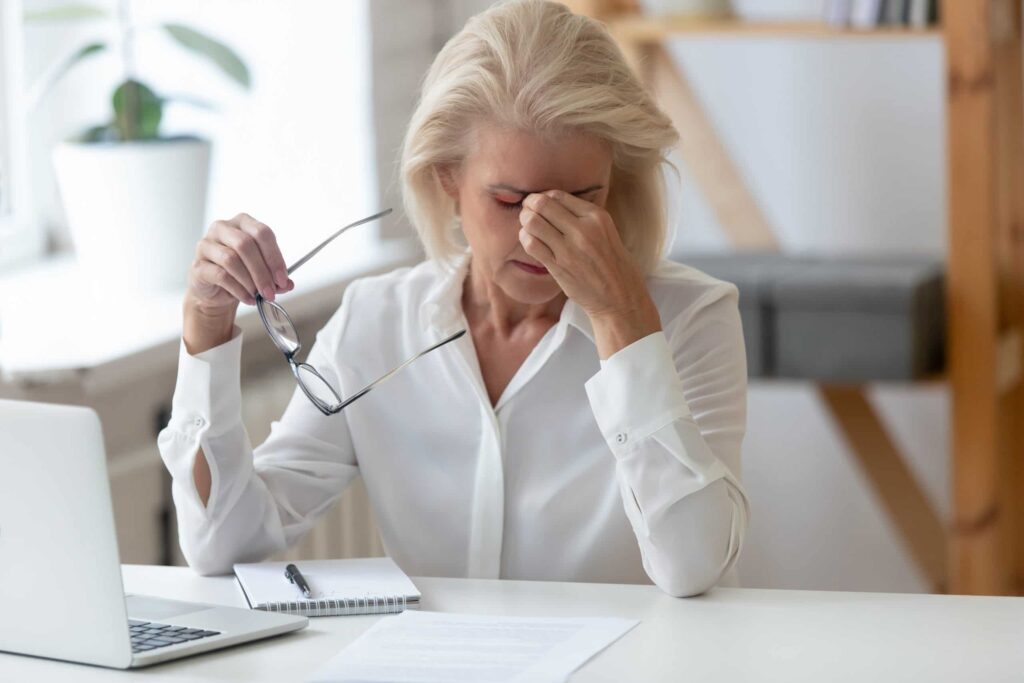
- Eye drops containing steroids:
They reduce inflammation. Steroid eye drops are not recommended for long-term use because they can lead to glaucoma and cataracts.
- Over-the-counter treatments:
- Artificial tears: Artificial tear drops help treat dry eyes. They help prevent corneal damage. However, anti-redness eye drops should be avoided because these drops can make your symptoms worse in the long run.
- Washing the eyelids: It is a Natural Cure method. Get eyelid-washing solutions from the pharmacy. Dip a clean tissue in this solution and gently move it toward the base of your eyelashes. Eyelid washes help remove crusts that can form on the eyelids and eyelashes.
- Surgical treatment: including sticking a rod in the blocked glands

What are the natural treatment options for Ocular Rosacea?
By following eye care and Natural Cure, you can manage ocular rosacea to a great extent. However, since these actions will not help cure the disease, continue your care measures and do not stop working even if you do not have any symptoms.
The following Natural Cure tips will help to cure this disease:
Washing the eyelids with warm water and baby shampoo.
- Warm compress: Close the eyes and use a warm compress every day for five to ten minutes.
- Gentle massage of the eyelids: It is helpful to release the blocked glands, which may be the leading cause of inflammation. Neither warm compresses nor eyelid massages are intended as a quick fix and are often recommended as long-term treatments.
Dietary supplement with fish oil and flaxseed.
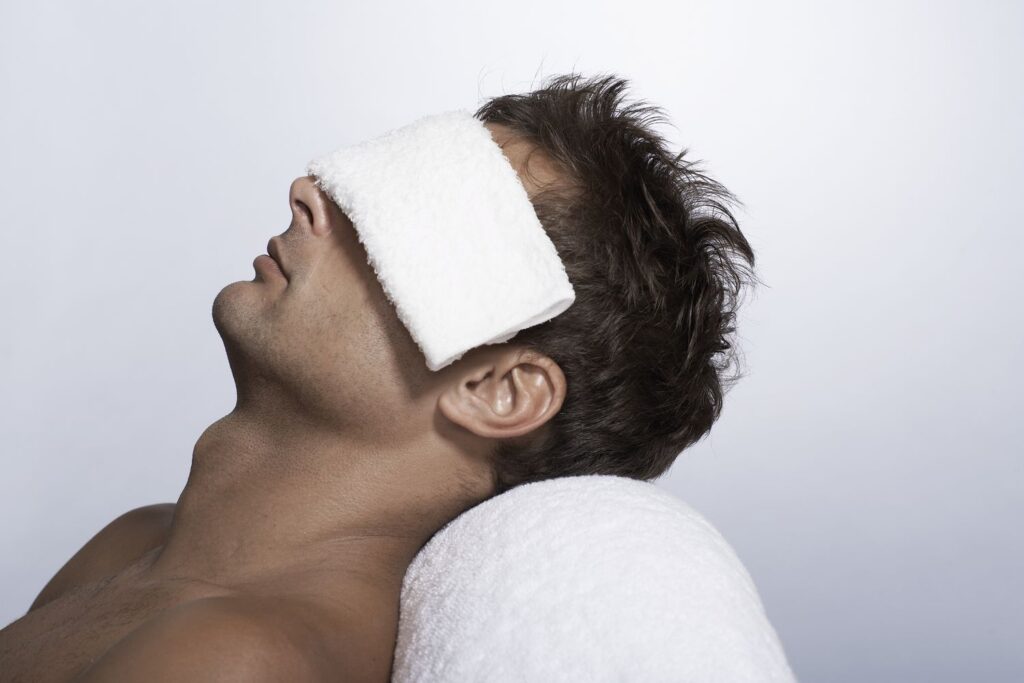
Wash the eyelids at least twice with warm water or care products recommended by the doctor and keep them clean.
If your eyes are inflamed, avoid makeup. If your conditions are suitable for makeup, using non-scented and non-greasy (non-comedogenic) cosmetics is better.
Do not use contact lenses during relapses, especially if you have dry eyes.
It is better to avoid being exposed to things that cause the recurrence of the disease. Do not eat hot and spicy foods that cause the blood vessels of the face to dilate. It is best to use artificial tear drops to reduce dry eyes and talk to your doctor to determine the best eye care products.
Control of ocular rosacea by eliminating Demodex mites
Suppose demodex parasites cause ocular rosacea or these parasites play a role in causing it. In that case, the wisest way to help treat ocular rosacea is to combat these parasites.

On the other hand, demo exes are usually deep in the skin; they lay eggs and are usually out of reach. For this reason, you cannot remove them by repeated washing. For this, you need unique products that penetrate deep into the skin and target them. PDT spray does precisely that. This spray is sprayed directly on the areas affected by rosacea and gradually reduces the symptoms of rosacea by eliminating Demodex.
In the case of ocular rosacea, SDT spray can also be used, which is a diluted and milder type of PDT. This product is gentle on the eyelids and does not cause any particular complications.
How can Ocular Rosacea be prevented naturally?
Preventive measures of ocular rosacea
- Use sunglasses
- Keep the eye area clean
- Not using contact lenses
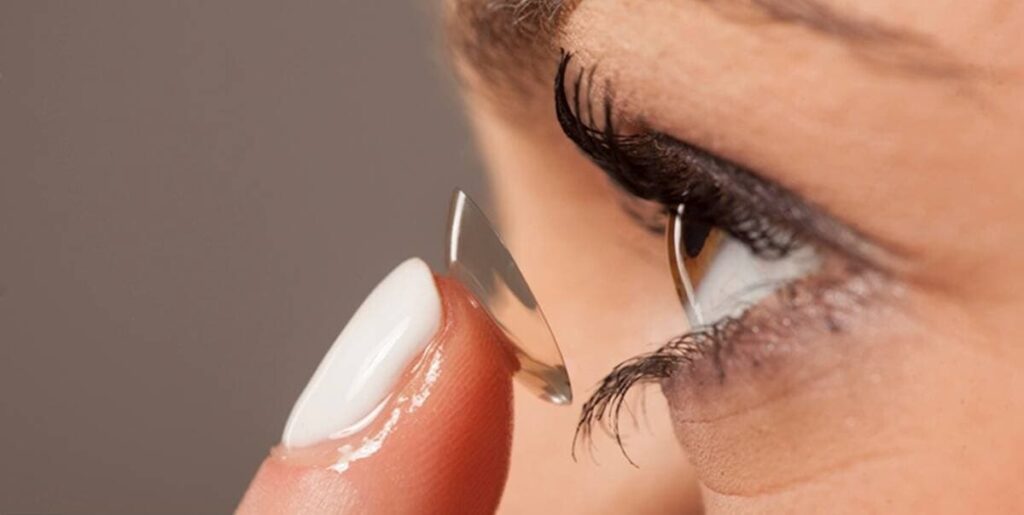
Conclusion
Ocular rosacea is an inflammatory disease that affects the eyes and the skin around the eyes. Ocular rosacea is a more extensive skin disease called rosacea that affects the entire face. It is sometimes called meibomian gland dysfunction (MGD).
Ocular rosacea is a chronic (long-term) disease with no natural cure. However, it can be controlled with different Natural Cure treatment methods and avoiding the triggers of this disease. However, there are solutions to relieve the symptoms of this disease and to know the factors that trigger it.
By finding these Natural Cure solutions, you should minimize the impact of the disease on your life. Ocular rosacea affects the eyes and the skin around them.
